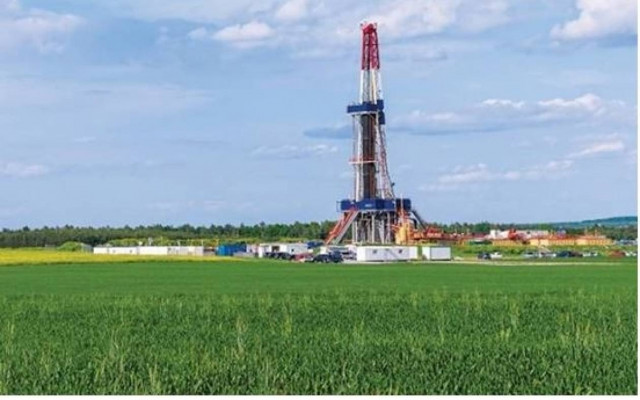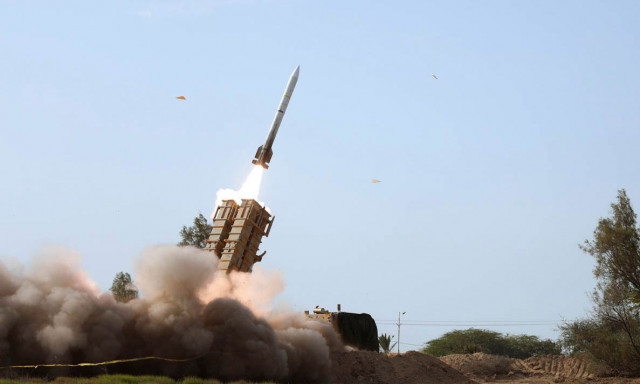Shale Gas: How the game in energy is changing
The extend of the use of shale gas produced mainly in America and yet exported to Europe is expected to bring major geopolitical realignments in 2015.

By Marina Protonotariou
The establishment of the Transatlantic Partnership of Trade and Investment between Europe and US, which is a priority for the next year, will try to link Europe with the US market to prevent the use of energy as a political tool, accelerating the end of the energy dependence of Europe from Russia.
Europe like Greece, does not encourage mining of shale gas, maintaining serious reservations about the environmental impact of mining process ... But there are no reservations about its import from the US, to the extent that the environmental risk is not borne Europe and the cheap produced gas will strengthen the industry and the effort for energy rehabilitation of Europe.
This was also said by the Greek Minister of Energy Mr. Maniatis in a recent speech on his visit to the US, knowing that US is interested in the rehabilitation of energy of Europe from Russia.... "Who knows," he said, "Maybe in the future we can introduce the US shale gas. The establishment of a Transatlantic Partnership for Trade and Investment could promote this. When markets operate and are well connected, they leave little room to use energy as a political tool. "
So from 2015, Europe will bind in the chariot of shale gas, by accelerating a massive import of this new source of energy and the possibility of exports from the US will have economic and geopolitical consequences. The energy costs in the US and EU will be greatly reduced and so they will be able to compete with emerging economies (China, India, Russia, Brazil, Turkey, etc.) which will probably continue to use conventional energy (oil, natural gas).
Finally, the West and especially the EU can steer clear of conventional energy sources from Russia, whose economy will receive a major blow.
The gradual detox of EU from Russia will end the natural gas contracts, which are defined based on the price of crude oil.
Furthermore, the possible extraction of natural gas from conventional and unconventional sources in Europe may lead to new cheaper prices for natural gas and create new transit nodes.
"The revolution of shale gas and shale oil brings huge upheavals, as now the United States, starting from next year, becomes export country in natural gas issues. There are already ready the first units, already licensed by the Ministry of Energy of the United States, while other applications are pending. Consequently, we are in a changing political environment, where objectively the companies which are established in the United States have a huge competitive advantage of the extremely reduced energy costs compared with industries and companies throughout the European Union", he said in a recent speech Mr. Maniatis, pointing to the new season ahead.
Game changer
The former CEO of BP Tony Hayward has described shale gas as «game changer», ie the determining factor, capable of changing the game in energy issues.
"Alternative thinking 2013: Renewable energy under the microscope", of Deloitte Touche Tohmatsu Limited, the extraction of shale gas is characterized as a revolution in the field of renewable energy worldwide and is often called a bridge to the future of energy. The last decade in the US, shale gas has changed the data of energy in the country and will soon affect the entire global market.
An MIT study shows that by 2020 the US will be able to cover at least 40% (possibly 50%) of the produced gas. According to the Association of Manufacturing US, the exploitation of shale gas will create 1 million new jobs in the country by 2025. At the same time, analysts estimate that shale gas is able not necessarily to decrease but at least, to stop the rise in gas prices. The energy production from natural gas reserves trapped in shale rock with deep drilling, particularly with the method of fracking, one meets today in countries such as Canada, Poland, Turkey and of course the US.
USA
The use benefits of shale gas in the US are significantly to the economy. Between 2005 – 2012, the energy costs in the EU increased by 37% and in the US fell by 4%, with European prices to be at least two times higher than the US.
In 2000 only 1% of US energy derived from shale gas, but by 2010 the US covered for 20% of their energy needs from this new form of energy. It is estimated that by 2035 the US will cover the bulk of their energy needs from shale gas, while by some extra-positive estimates it would cover all of their energy needs. The result is the stunning drop in energy prices (and production costs) which has very positive effects for consumers, the energy-intensive industries and the economy as a whole. Based on the European Commission data, the electricity prices in the EU with base year 2005 increased by 33% (2005 = 100, 2012 = 135) in Japan prices rose by 12% (2005 = 100, 2012 = 112), while in the US fell (2005 = 100, 2012 = 95) .
Europe
In Europe, 53% of the energy consumed comes from abroad since the EU is the largest energy importer in the world. This dependence is 80% for crude oil, 66% for natural gas and 40% for nuclear fuel.
Until now, the extraction of shale gas in Europe is limited and, at present, there is no commercial production.
In Europe, basically is postponed any substantial extraction attempt, as in countries like France, Germany and Bulgaria found serious environmental problems including pollution of groundwater and potential seismic events. Moreover, despite the high economic interest around this unconventional energy source, there is no comprehensive legal framework that defines the issues of mining and environmental impact in either Community or national level.
Greece
Early studies show that Greece has non-conventional hydrocarbons, shale gas and shale oil. The possibility of such deposits had been discussed in the past, but in recent years took place a more thorough study. The deposits that have been found from the preliminary research conducted by the IGME are first in Thrace and more particularly in areas around Alexandroupolis and Orestiada. For the recording of deposits further research is needed, but as repeatedly stated by the Minister of Energy, the utilization of the Greek shale gas is not in the ministry plans.
























